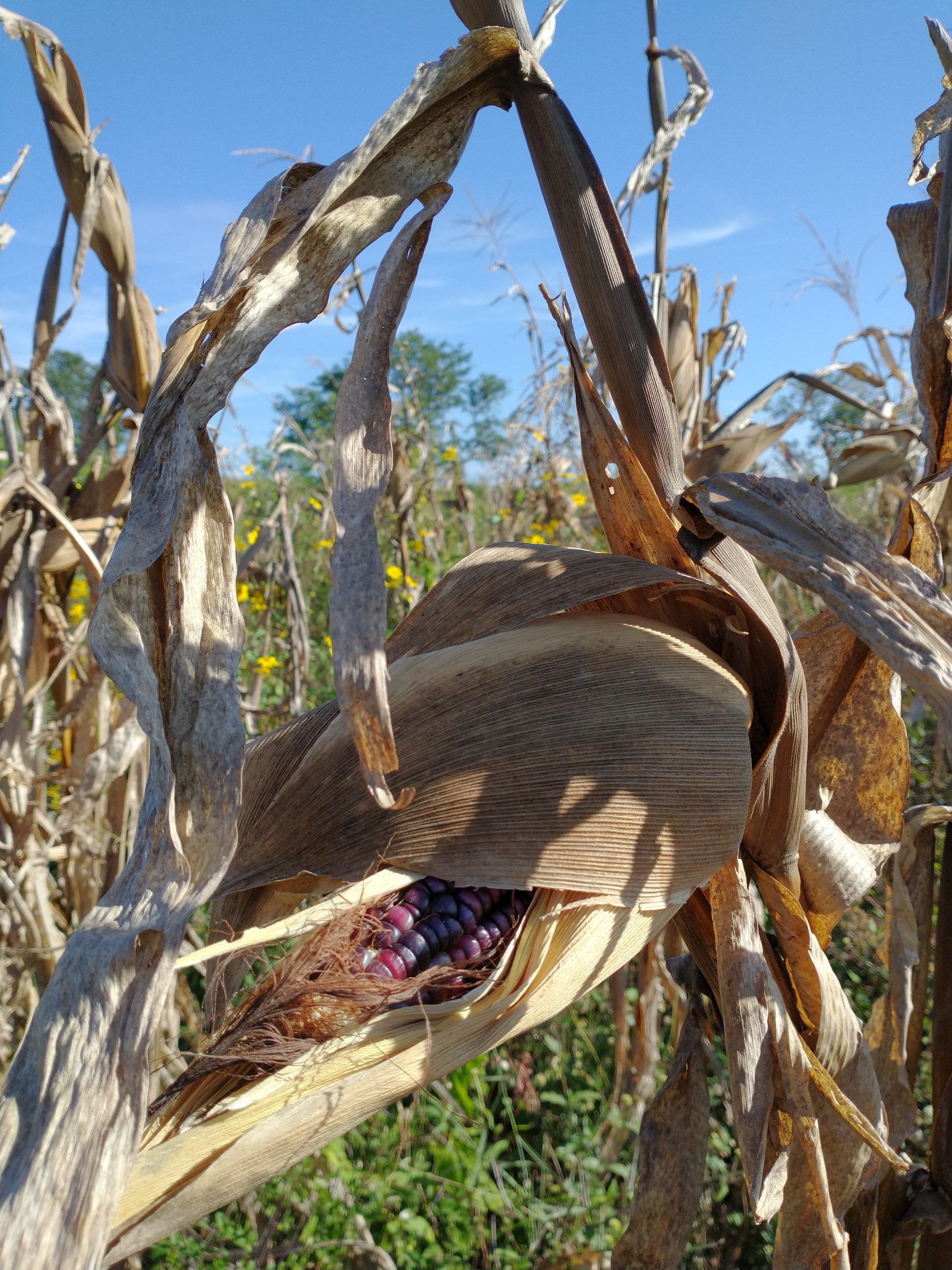
April 23, 2021, by Andrew Edwards (Ed)
Adaptation and resilience in the Yucatan: an ode to farmers – by Karla G. Hernandez-Aguilar
Karla G. Hernandez-Aguilar is a PhD student on the Palaeobenchmarking Resilient Agricultural Systems (PalaeoRAS) project
I described the challenges of conducting fieldwork in the middle of a pandemic in my blog on 16 April 2021 so now I would like to take this opportunity to reflect upon the qualities of adaptation and resilience that I observed on a daily basis in the Yucatan.
This past year has taught us all so much about adaptation and resilience, whether in our jobs, our families or our daily life. In my case, as a 2nd year climate change PhD researcher, these two concepts have changed the way I look at life and given me a deeper appreciation of things I normally take for granted, like access to food and the importance of food systems.

Local white maize used to make tortillas and a local ancestral Mayan beverage called pozol or pozole – by Karla G. Hernandez-Aguilar
Reflections in the Yucatan
One day, while walking through a maize plot (milpa) and conducting my soil sampling, I had the opportunity to harvest the maize, which was eventually turned into my lunch. As I helped a farmer with the harvest, he asked me, “What do you see when you sit down and eat? You see food as a system or just as a meal?” This shook me as I had never thought about it this way before. He then added, “For me, everything starts here, with the moment I harvest this maize, with these seeds as I am already seeing my food, my income and my life, all together; and what would I have to do this year to make sure I keep all of those three things throughout the year. But also, how I will adapt if something doesn’t go as planned.“

Maya woman using masa (dough made from crushing and kneading maize seeds) to make handmade tortillas in a traditional Mayan kitchen – by Karla G. Hernandez-Aguilar
Later, as I ate the delicious meal that had been prepared, I reflected upon the profound significance of harvest time for farmers, something far greater than simply gathering in maize. This led me to thinking about the roles that all of us play in collaborative research, including the farmers. I contemplated the importance of pluralistic approaches and the connectivity of knowledge to gain a better understanding of food as a system.
Adapting to Covid-19 and climate change at the same time
Driving back from my work within these communities, surrounded by hundreds of local maize plots (milpas), I had time to consider how Covid-19 has impacted everyone’s lives and how we have adapted to this pandemic in different ways.
For some farmers in the Yucatan, Covid-19 has been an ally because they have gained better access to healthy food from their own farms. Yes, it is true that extreme weather events continue to hit farmers hard, but the farmers have shown resilience and survived Covid-19. Some have even prospered because trading prices have improved and become fairer, with farmers’ jobs becoming increasingly valued and better paid. For others, the impact has been so negative that they have had to modify their lifestyles completely. However, they have shown resilience, knowing they are healthy and have seeds for future crops.

Local squashes called chihuas (milpa squashes) cultivated together with maize within a milpa in Southern Yucatan – by Karla G. Hernandez-Aguilar
I have always been aware of the importance of agriculture as my grandfather was a farmer. However, this trip was an eye opener; I truly appreciated the privilege of having access to food, whilst recognising current threats to local food security. This trip led me to start questioning the role each of us plays in food systems. Behind every meal today, there is a seed, a livelihood, an income, but more importantly there is a farmer thinking about the future of their crops, crops that could become your future food.
Special acknowledgement to Nazario Poot, Isaias Pech, Jose Concepcion Perera and Benito Chi Chulim, farmers from Xoy, Maxcanu and Tzucacab communities in Yucatan for their support and collaboration within our research throughout Covid-19.

Isaias Pech (left) and Jose Concepcion Perera (right) Maya farmers from Maxcanu community and members of the community research team – by Shirley Rodriguez
No comments yet, fill out a comment to be the first

Leave a Reply